Nursing Assignment: Ethical Analysis of a Heart Failure Case Study
VerifiedAdded on 2022/11/13
|5
|1134
|280
Report
AI Summary
This nursing assignment presents a case study of an elderly patient with heart failure, exploring the ethical issues surrounding treatment decisions. The patient, suffering from multiple health complications, experiences complications with a left ventricular assist device and wishes to discontinue treatment due to pain. The assignment highlights the conflict between the patient's autonomy, the doctor's and wife's perspectives, and ethical considerations regarding informed consent and the right to refuse treatment. The student, acting as a nurse practitioner, identifies the ethical dilemma and proposes strategies to address it, emphasizing the importance of respecting the patient's wishes and the need for informed consent. The discussion includes references to relevant literature and legal frameworks, such as the Patient Self-Determination Act, to support the ethical position. The conclusion reiterates the significance of patient autonomy in life-sustaining treatments and the role of the nurse in advocating for the patient's rights. The assignment also considers the ethical implications of withholding and withdrawing treatment, the role of surrogates, and the importance of open communication in healthcare decisions.
1 out of 5
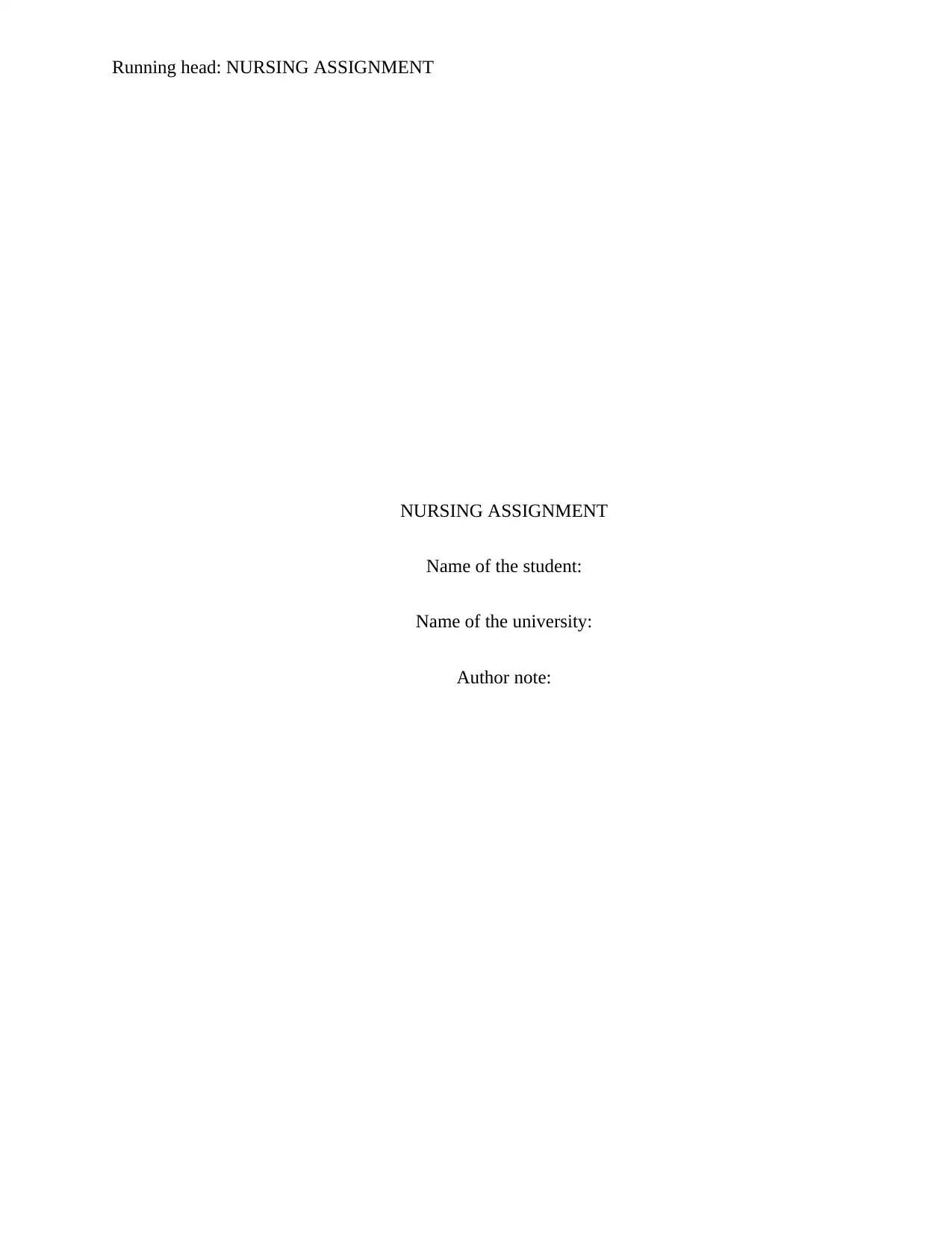
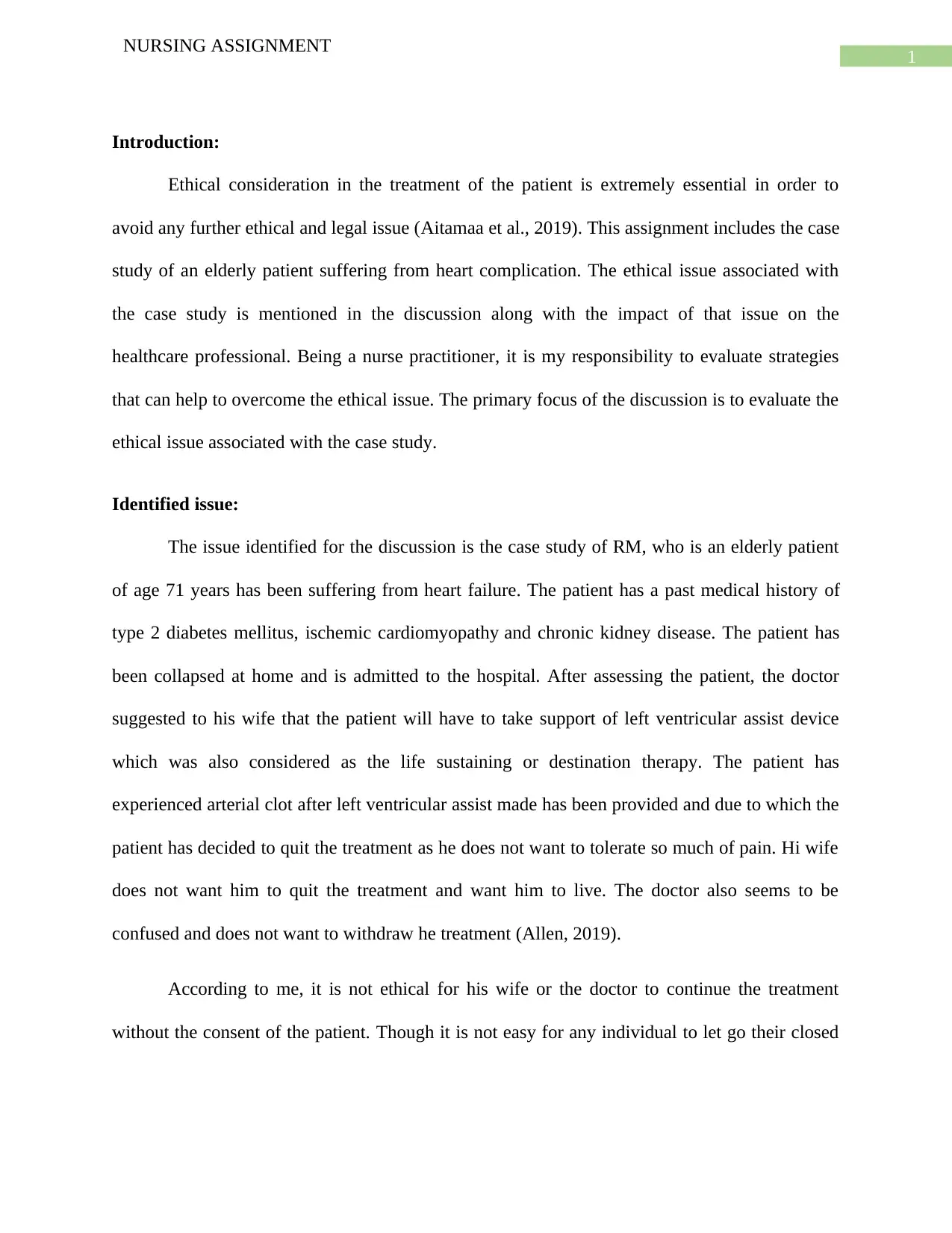
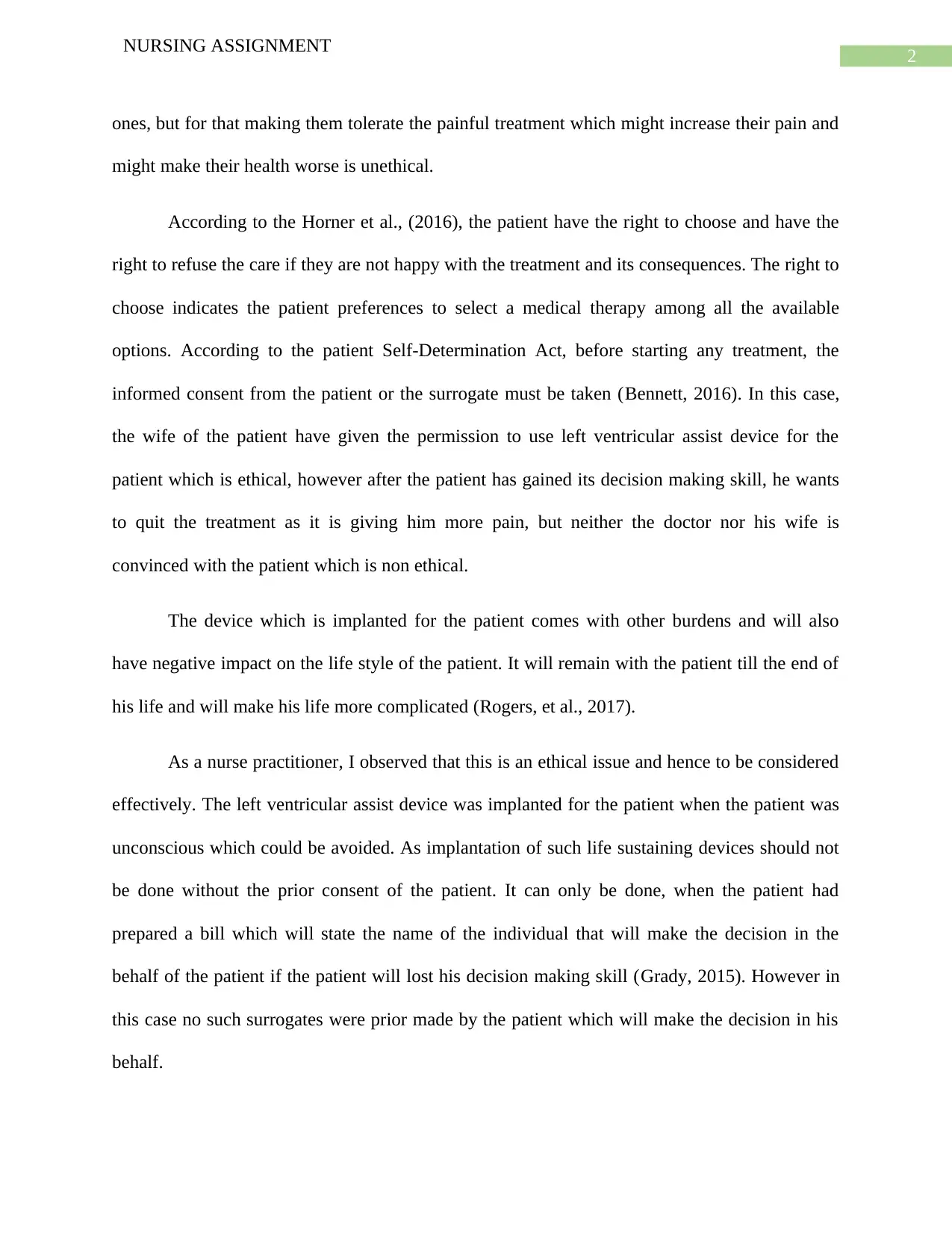

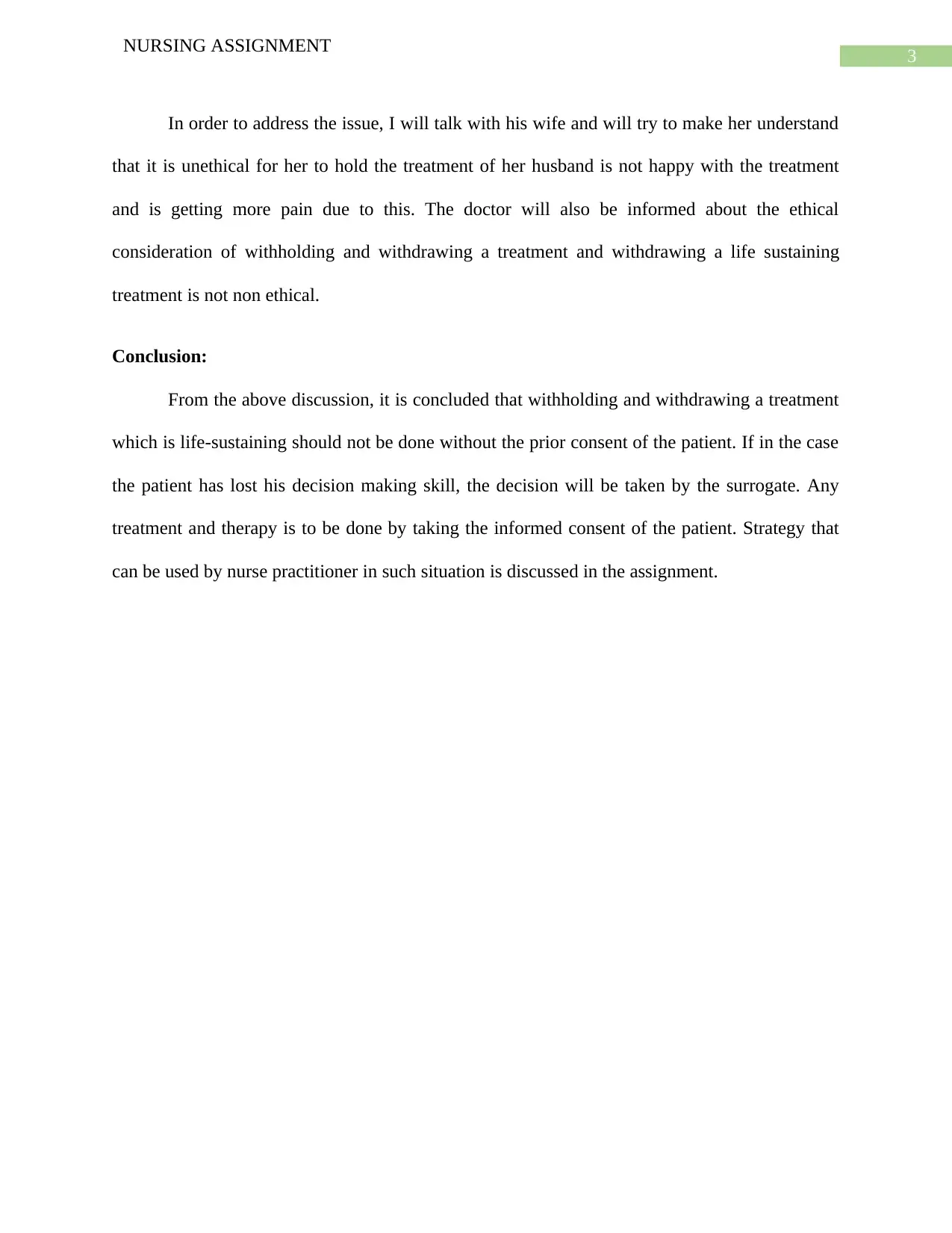
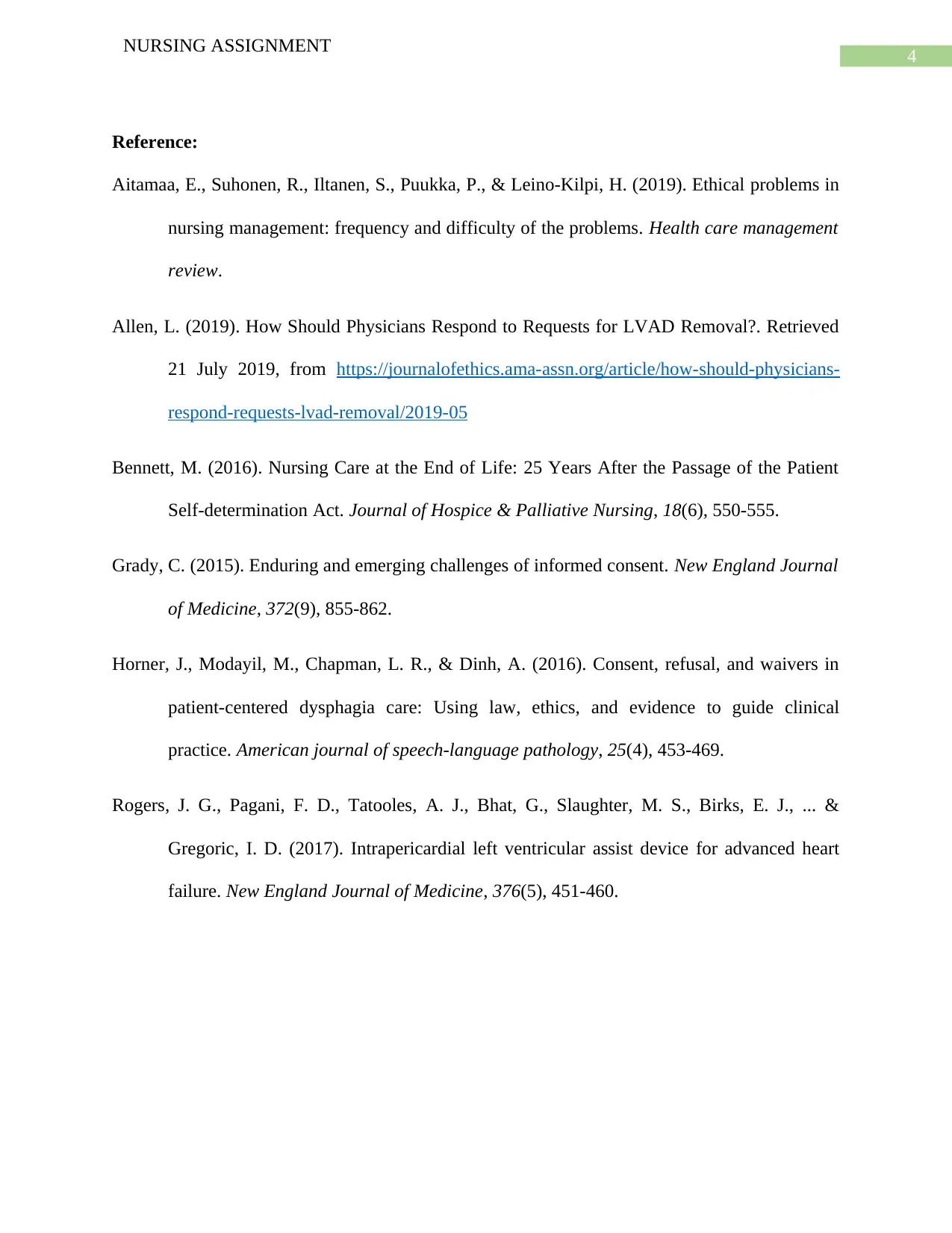






![[object Object]](/_next/static/media/star-bottom.7253800d.svg)